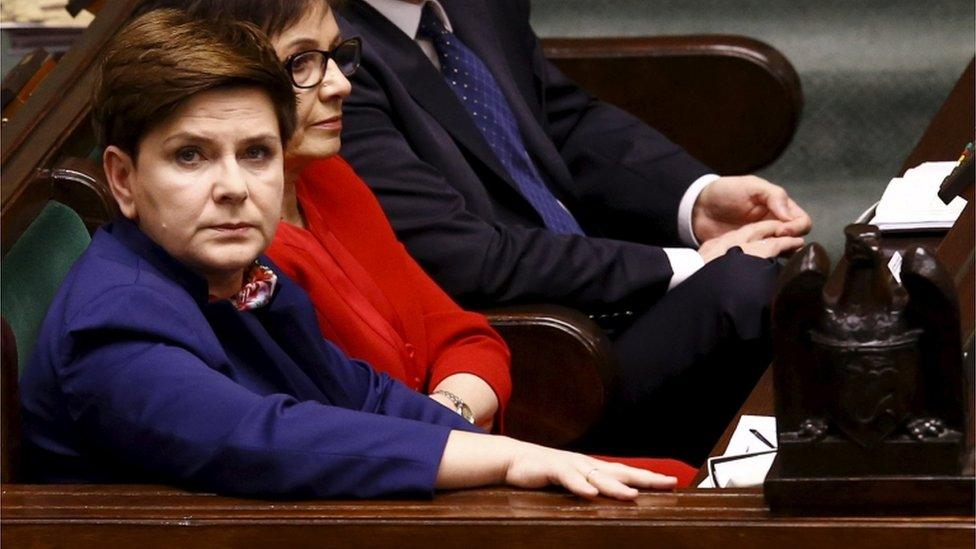Brexit negotiations: How will Poland behave towards the UK?
- Published
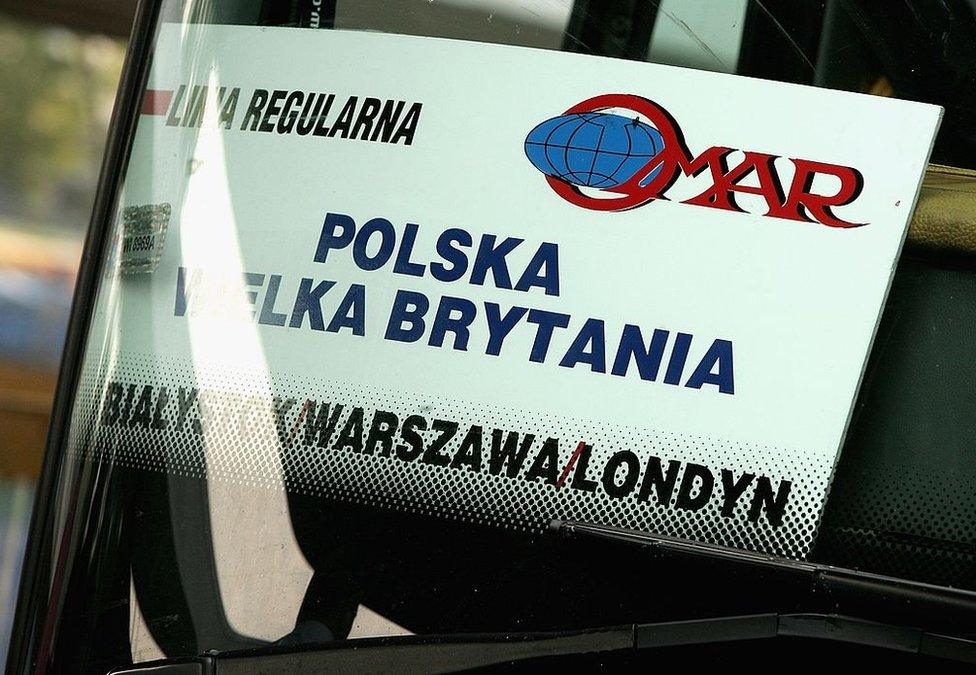
Zachodnia bus station in Warsaw is big, bustling and busy.
People laden with 57 varieties of luggage - from smart suitcases to supermarket bags tied together with string - queue in the spring sunshine, passports open, tickets in their hands.
Coaches come and go all the time. To St Petersburg, Bosnia, Minsk and Vienna. And this one - after a gruelling 29-hour journey with many stops - to London.
As the driver Lukasz hauls bags into the coach's underbelly, he tells me there used to be 20 people a day going to London, but now there's not a single one going the whole way.
"It's a very strong situation in London for Polish people, difficult," he says.
Why? It is because of Brexit.
There is a widespread perception Britain is no longer a friendly place.
I am told Polish TV and radio has been full of a story about a Polish teenager being attacked. It may not be true, but there have been many such stories here, apparently unreported in Britain.
Uncertain future
It is at least arguable that one of the main reasons we are leaving the EU is because many people thought there were too many Poles and Eastern Europeans in the UK.
Their fate will be the very first thing to be discussed in the Brexit talks.
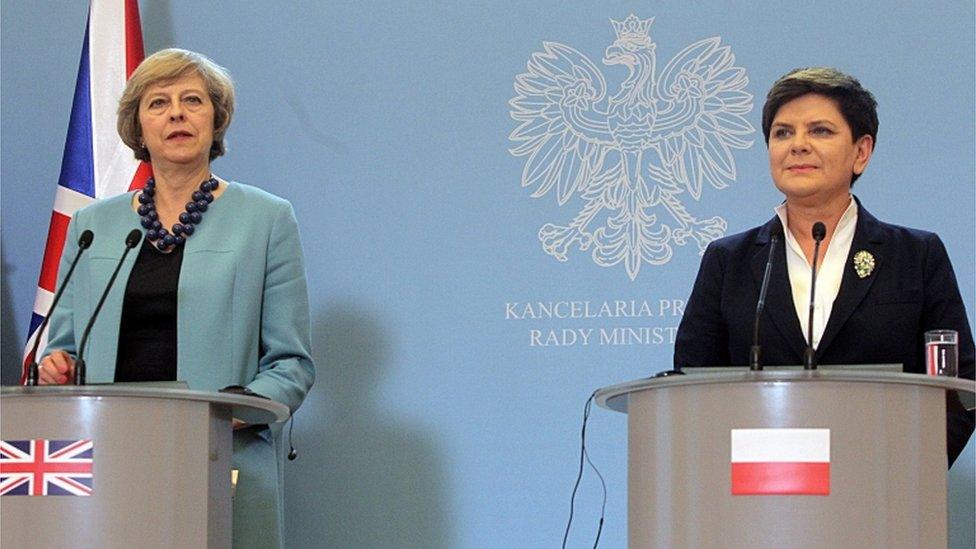
Theresa May has said she "wants and expects" to be able to protect the rights of Polish citizens in the UK
Kasia, who lives in the UK, tells me: "Nobody knows what will happen, that's the scariest thing. What will we need to stay? No answers."
The Polish government will be a big player when it comes to the negotiations over the UK's divorce from the EU.
European Council president Donald Tusk, incidentally a former Polish prime minister whose reappointment the Polish government tried to block, stresses the need for unity.
But individual nations will have individual bees in their respective bonnets.
The Polish government will place a high priority on the rights of its citizens who live in the UK and those who want to come in the future.
Students at Warsaw University tell me Britain is still a prime destination. Natalia wants to study in Scotland and helps run an advice service for students.
"We've got thousands of questions," she says. "'What about Brexit?', 'Will we still be able to get a student loan?', 'Will I be able to finish my studies?' And to be honest we can't really answer them.
"My friend is currently studying in the UK and she got an email saying 'We are not sure if you will be able to finish your studies here, but don't worry, we hope it will work out'."
Poland's fiercely nationalistic ruling party Law and Justice (PiS) is very hostile to the powers that be in Brussels and sees the UK as something of an ally, one it will miss.
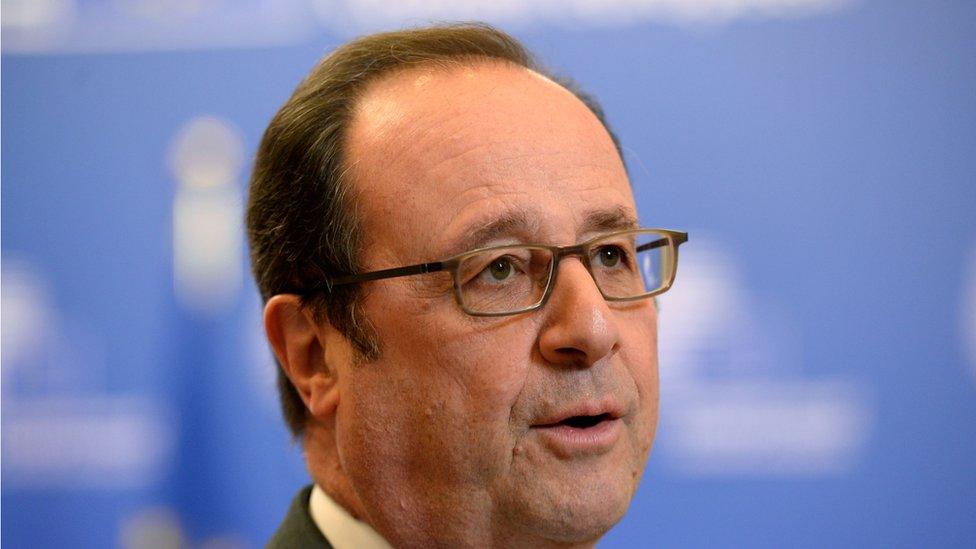
Prime Minister Beata Szydlo accused President Hollande of trying to blackmail Poland, which is the biggest net recipient of EU funds
One of the party's MPs, Marcin Horala, tells me his government should demand as little change as possible.
"It would be best to keep all the achievements of the EU as it is: free travel, free work. That you can change your place of living freely within Europe is profitable for all sides, including Britain.
"I would try to convince the British government to have two immigration policies," he says. "One for members of the EU, one for others."
Paradox
As it happens, at the time I visit Poland, Catherine Barnard, professor of European law at Cambridge, is lecturing at the College of Europe just outside Warsaw. She tells me this would all be very complicated.
"For those who are currently [in the UK], there is a real problem. We have no records of who is in the country," she explains.
"For people who have been working for agencies, working in the fields, collecting daffodils in the East of England, [it's] much harder to work out how long they've been here. They may not have any paperwork. It will be quite difficult to prove their right to be in the UK."
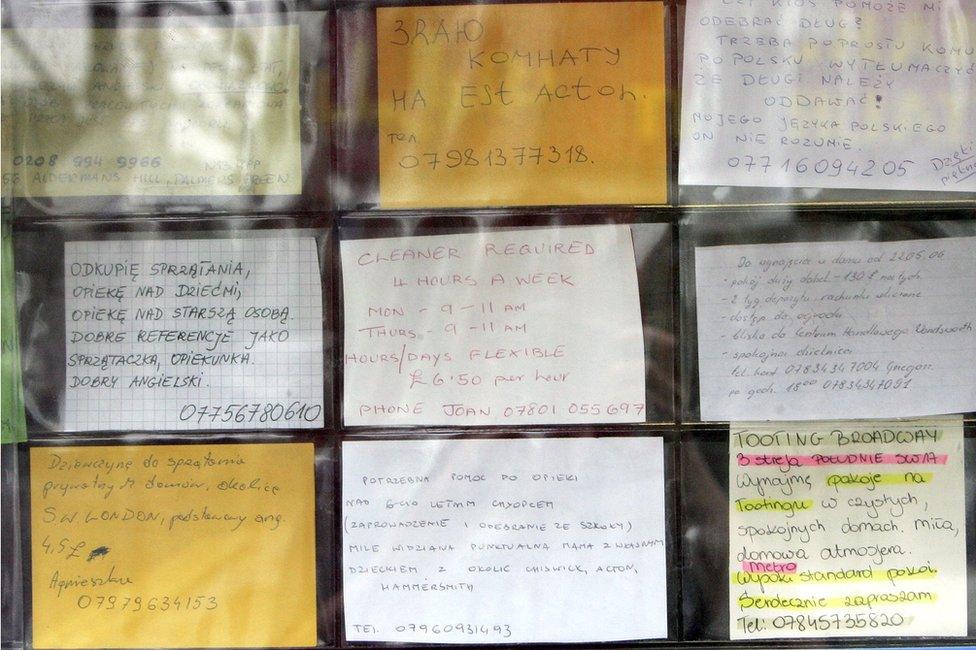
And there's more.
She adds: "There will be some sort of work permit scheme in the future. Will it be light touch, or a full visa scheme, as applied now to non-EU nationals? That's extremely burdensome to employers and a lot of small businesses [who have] never been through that process will be in for a quite significant shock."
Pawel Kaczmarczyk, director of the Centre for Migration Research in Warsaw, argues the British government knows the UK needs Polish immigrants, and so - despite claims to be "taking back control" - there won't be any real difference.
"All of us know that migration is a lot about perception, not reality. But when we consider this case, it has been a hugely beneficial process, and still politicians and the media are able to present it as a negative story. That is one of the main reasons for Brexit.
"It's quite a paradox: in the end we will see Polish migrants staying in the UK and the UK out of the EU."
Poland will play a critical role in these coming talks and, despite a great feeling of friendship towards the UK, few think Mrs May will get her way.
Mark Mardell presents The World This Weekend, on BBC Radio 4 on Sundays at 1300 BST. Or you can listen again via the BBC Radio 4 website.
- Published10 March 2017
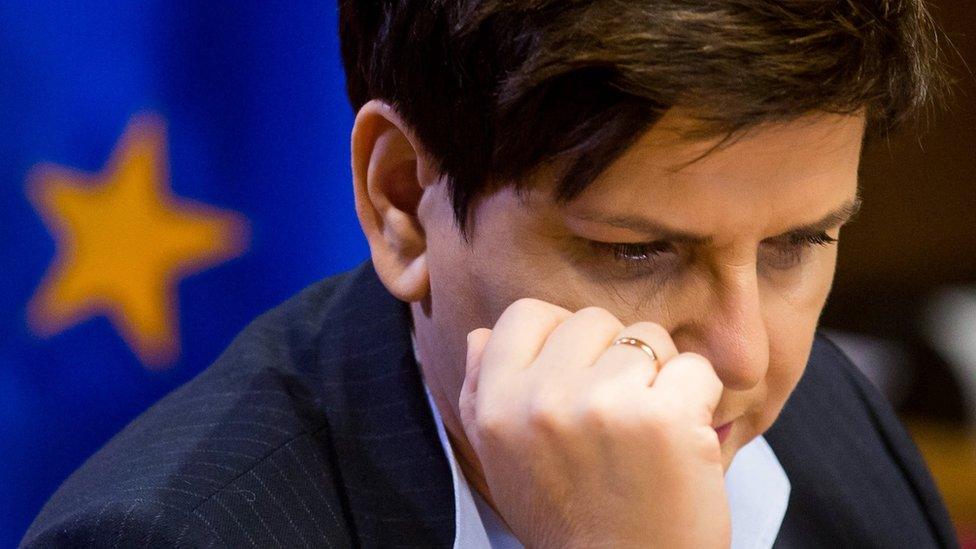
- Published9 March 2017
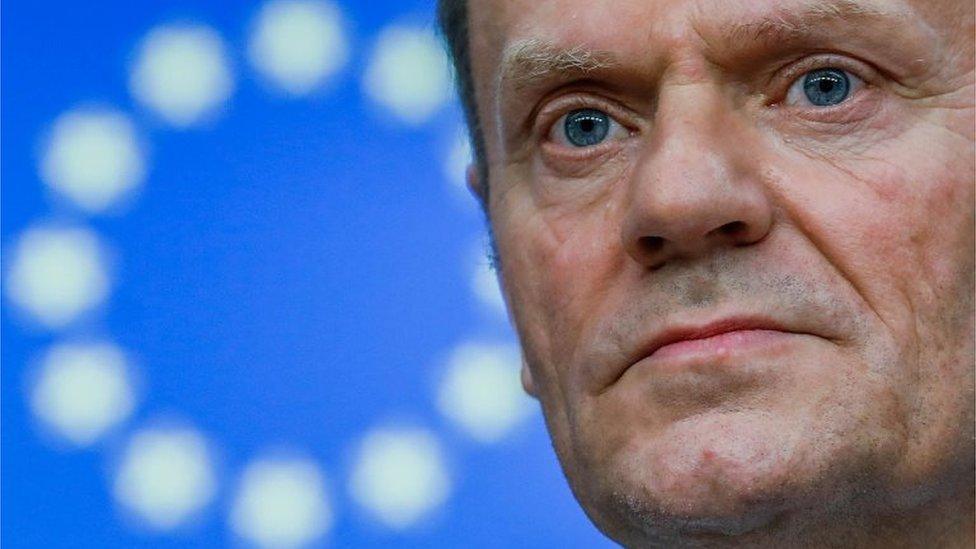
- Published12 January 2017

- Published13 January 2016
